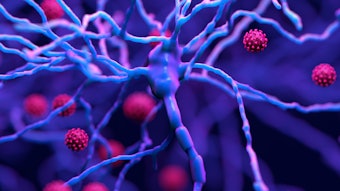Late-Breaking Science to headline #ISC21 Main Events
Each of the three Main Events during #ISC21 will showcase select late-breaking science presentations. Held at 10:30 a.m. each day, the Main Events will feature abstract presenters discussing their latest findings.

Each of the three Main Events during #ISC21 will showcase select late-breaking science presentations.
“Up-to-date trial results in pre-hospital and hyperacute care, new endovascular approaches, secondary prevention as well as COVID-19 will shape and influence the current stroke landscape and our own clinical practice,” said #ISC21 Program Chair Louise D. McCullough, MD, PhD.
The Main Events, at 10:30 a.m. each day, will feature abstract presenters discussing their latest findings. The abstracts are:
Wednesday, March 17
- Evaluation of Direct Transfer to Angiography Suite Versus Computed Tomography Suite in Endovascular Treatment of Stroke: ANGIO-CAT Randomized Clinical Trial
- Benefits of Stroke Treatment Delivered by a Mobile Stroke Unit Compared to Standard Management by Emergency Medical Services (BEST-MSU Study)
Thursday, March 18
- Intravenous Thrombolysis Followed by Endovascular Thrombectomy Versus Direct Endovascular Thrombectomy: A Randomized Controlled Trial
- Systemic THrombolysis Randomization IN Endovascular Stroke Therapy (SHRINE) Collaboration
- Secondary Analysis of the Racecat Trial: Benefit of Direct Transfer to an Endovascular Stroke Center According to the Presence of Large Vessel Occlusion and the Transfer Time to the Endovascular Center
- Stroke AF: Atrial Fibrillation in Non-Cardioembolic Stroke of Presumed Known Origin
- Safety and Tolerability of Recombinant Human Tissue Kallikrein (DM199) in Acute Ischemic Stroke: The ReMEDy Randomized Clinical Trial
Friday, March 19
- Thrombectomy for Anterior Circulation Stroke Beyond 6 Hours From Time Last Known Well: Final Results of the Aurora (Analysis of Pooled Data From Randomized Studies of Thrombectomy More Than 6 Hours After Last Known Well) Collaboration
- National Temporal Trends in Endovascular Therapy Utilization and Outcomes According to Race and Ethnicity: Findings From Get With The Guidelines-Stroke
- A New Class of Radially Adjustable Stentrievers for Acute Ischemic Stroke: Primary Results of the Multicenter Tiger Trial
- Vertebrobasilar Occlusion Randomization to Endovascular Reperfusion Versus Intravenous Thrombolysis or Medical Treatment Alone Systematic Evaluation (VERITAS) Collaboration
- Stroke Among Patients Hospitalized With COVID-19 in the United States: Results From the AHA COVID-19 Cardiovascular Disease Registry
“Late-Breaking Science sessions are a must-attend for every discipline in stroke management and care,” said McCullough, who is also chief of neurology at Memorial Hermann Hospital – Texas Medical Center and co-director of Mischner Neuroscience Institute in Houston.
Register now.








